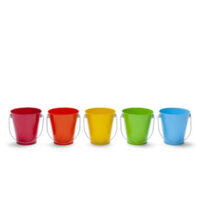What Are The Different Schedules Of Controlled Substances?

When you read news reports about criminal cases involving drugs, you sometimes see the phrases “illegal drugs” and “controlled substances” used interchangeably. In fact, “controlled substances” just means that the drug is illegal at least some of the time. Some controlled substances are legal in some contexts. The Controlled Substances Act, a federal law enacted in 1970, classifies drugs into five categories, called schedules; each category has a different set of rules about the situations in which it is against the law to possess or consume those drugs. The criminal case of someone who gets caught in possession of 10 grams of a Schedule I controlled substance will be very different from the criminal case of someone who gets caught in possession of 10 grams of a Schedule V controlled substance. No matter which illegal drug you are being accused of possessing, a West Palm Beach drug offenses lawyer can help.
Some Illegal Drugs Are More Illegal Than Others
The five schedules of controlled substances each involves a different set of restrictions on the possession, use, and sale of drugs on that schedule:
- Schedule I controlled substances are always illegal; they do not have any legally accepted medical uses. These drugs include heroin, MDMA, and peyote, among others. Despite some local laws (and even state laws in states other than Florida) decriminalizing its use, cannabis is a Schedule I drug according to federal law.
- Schedule II controlled substances have legal medical uses, but they are so dangerous that their medical use is heavily restricted. Examples include fentanyl (legal for use during surgery and on the battlefield) and cocaine (legal for use in certain types of eye surgery). The prescription opioids hydrocodone and oxycodone are also Schedule II controlled substances.
- Schedule III controlled substances are legal by prescription but have a high potential for abuse. Examples include codeine and anabolic steroids.
- Schedule IV controlled substances are prescription drugs with a moderate potential for abuse, such as Xanax, Valium, and Ambien.
- Schedule V controlled substances are prescription drugs with just enough abuse potential that the law does not consider it safe to sell them over the counter. This category includes some weight loss drugs and prescription cough syrups.
Which schedule of controlled substance is involved in your criminal case is only one of the factors affecting the sentence you can face if you are convicted. The penalties are much less severe for possessing ten Valium pills than for possessing a bag of heroin that weighs as much as ten Valium pills. Of course, it also matters whether you plead innocent or guilty and whether you have prior criminal convictions, among other matters.
Contact a West Palm Beach Drug Crimes Lawyer Today
A Palm Beach County criminal defense lawyer can help you if you are facing misdemeanor or felony charges for possession of a controlled substance of any schedule and in any quantity. Contact William Wallshein P.A. in West Palm Beach Florida to discuss your case.
Source:
leg.state.fl.us/Statutes/index.cfm?App_mode=Display_Statute&URL=0800-0899/0893/Sections/0893.03.html
